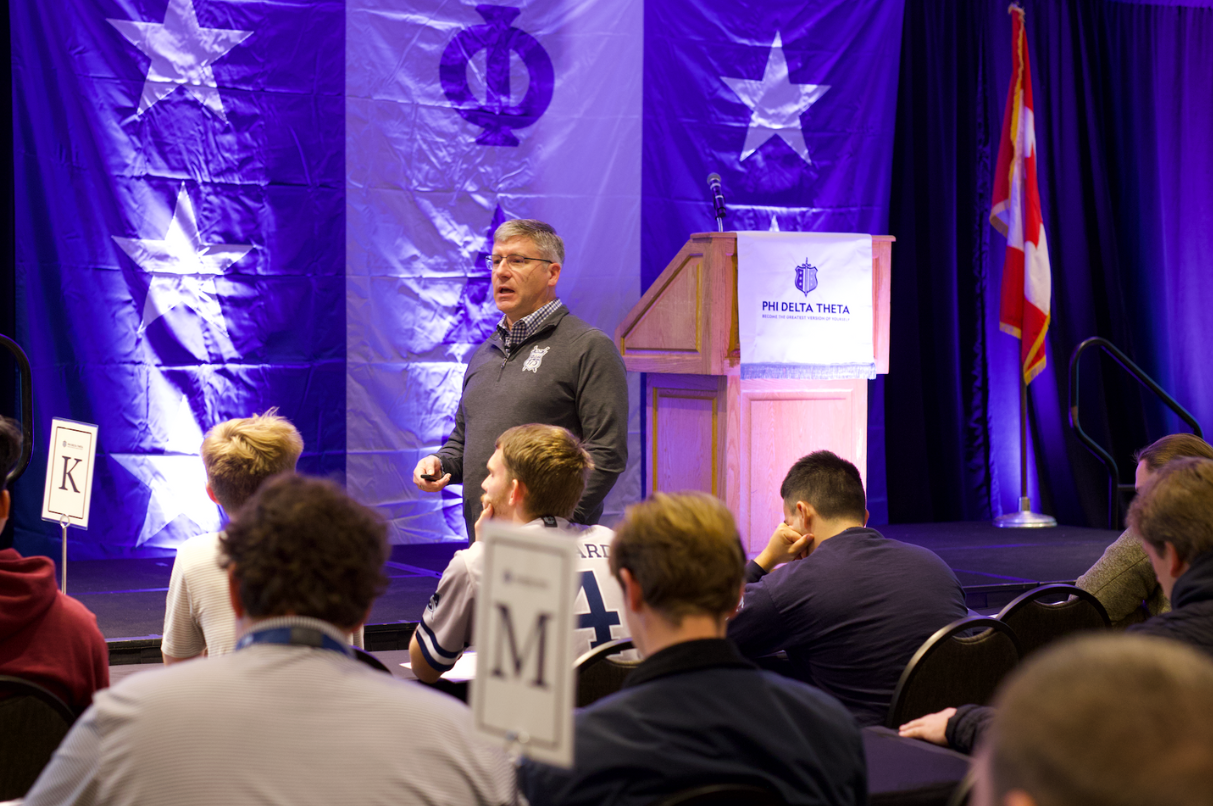They make it easy, you know.
They truly make it easy. The hazers—the bullies in a chapter, those who believe in hazing, those who argue loudly and long that hazing has a place in Phi Delta Theta—a brotherhood that is based upon honorable principles and values—make it very easy for the rest of us to figure out that the chapter is involved in hazing.
I’m writing about detecting hazing…figuring out which chapters employ hazing practices…which chapters allow hazing to exist…which chapters allow the bullies who believe in hazing to take control.
Common sense—as though that was ever something that hazers use—tells us that if you engage in hazing, you should keep it a secret. A big secret. More secret than the formula for the hydrogen bomb or the real explanation of health care or how to beat the spread offense with the Cover Two.
Hazing is illegal. It is a violation of state law in over forty states. It has resulted in deaths and injuries, seven figure judgments in civil litigation against undergraduates, chapters, alumni corporations and national organizations and more recently felony as well as misdemeanor charges, jail time and a criminal record. From the international organization: The loss of the charter or significant sanctions against a chapter, reorganizations or membership reviews, suspensions and expulsions.
Common sense says, “If you are going to do something that is illegal, immoral and that will place your chapter, your charter and your membership in jeopardy, you should keep that a secret”
But, hazers are driven by ego. Ego rarely if ever listens to common sense. And, hazers want the rest of the campus to know that Phi Delta Theta is a tough badge to earn…or at least that is how they mistakenly perceive it.
Hazing actually makes it easy to become a member rather than difficult. Anyone can spout off the “right” answers, run around at the behest of the members, be a custodian and pizza delivery driver and memorize trivia. Anyone. You can have the intelligence quotient of a three-legged flea and be initiated into a hazing chapter.
Hazing is also about control and authority. If you are admitted to a university and you don’t study, you will fail. If you accept a job and don’t show up for work, you will be fired. But, if you are joining a hazing chapter, you don’t have to worry. If you do as you are told and speak as you are told, you will become a member regardless of your actual performance because, “He’s like a great pledge, dude!” That means he is a robot—a metronome. If you look for control and authority—collecting cell phones of pledges, for instance, or requiring pledges to act or respond in certain ways—then you will find hazing.
The signs, indications, clues and hints are Right There if you look, listen or ask innocuous questions.
Ask the question: “Does your chapter haze?” If the answer is, “Why, Phi Delta Theta (or the university) has a policy against hazing!” then it is likely that the chapter is hazing. This non-answer answer is a way of saying, “We haze but we don’t want to go on the record, so we’ll let you do the math and we’ll play hide the ball” I always like to hear, “No, our chapter does not haze” or “Let us show you our program”. Those are direct answers. Hazers treat direct answers like H1N1.
Watch the Phikeias. Look at the way they dress, at the way that they carry their backpacks. Look for uniformity, which translates into pledge class unity, which = hazing. Pledge class unity and hazing share a symbiotic relationship. Each needs the other in order to survive. Listen to the way that pledges interact with members—are they open and relaxed or tense and guarded? The latter suggests hazing.
Ask the brothers: “Which is more important—pledge class unity or chapter unity?” and listen to the answers. Most hazers are incapable of having an intelligent conversation about the fallacies and corrosive effect of pledge class unity in a chapter.
Are the Phikeias required to carry anything with them at all times? Boilerplate hazing practices include requirements to possess or carry certain items, often in the dominant or primary color of the organization. They are hazed if they are found without these items.
Ask to see a copy of the program. Is it vague—a page or two of bland generalities with a touch of innocence, as in, “Pledges learn Greek alphabet”? That is usually but not always a sign of hazing.
Ask this question: “Pretend that I am joining the chapter. Take me through a week—say, 7 p.m. on a Sunday night to 7 p.m. next Sunday night. Just listen—don’t overreact.
Ask about the three most dangerous nights for young men joining a fraternity. Bid night, “Bigs” night (the night that Big Brothers are revealed or announced), and initiation. Ask for detailed answers. In academic year 2008-2009, six young men died joining fraternities in the U.S. and four died during one of these events for pledges during that time. Ask about the use of alcohol in these activities.
Ask about pre-initiation—a period of time when pledges are supposedly preparing themselves for initiation. In reality, the hazing is taken up several notches and usually for hell week—a period of several days that includes a fake ending.
Other signs: coverings for first floor windows and/or notices that “Initiation in progress: brothers only!” posted on the house. In reality, hazing and hell week are in progress. Window coverings are often black plastic trash bags. Ask about “sig” or signature books—when pledges must gather signatures, members will often withhold information or signatures or require pledges to perform tasks or personal servitude in order to receive a signature.
Watch for greetings—of course, these are required for Phikeias but not for members. Ingress and egress—pledges must use certain entrances while members may use any entrance.
Hazers like code words and phrases and especially those related to military history, video games and action movies. If you review the program, look for odd-sounding terms or phrases that require an explanation.
Finally, remember that hazers are not espionage agents. They cannot and will not think of everything that must be concealed or explained away. And the pledges cannot be controlled, despite the belief of the hazers that they can. In fact, if the pledges provide consistently orchestrated answers, that confirms that hazing is occurring. Is that how they would normally respond to questions?
As we celebrate National Hazing Prevention Week, let us remember the values and ideals of our founders…for whom there was no pledging and no hazing. May the day arrive when we do not need to concern ourselves with hazing because…it no longer exists.
Sincerely,
Dave Westol
Limberlost Consulting, Inc.
Carmel, Indiana
Dave Westol served his fraternity for eighteen years as Chief Executive Officer and now owns a consulting company. He received his undergraduate degree from Michigan State University and his law degree from The Detroit College of Law. He is a member of the board of directors of HazingPrevention.org In his spare time he is a high school football official and Phi Delta Theta volunteer David Green is a member of the same varsity officiating crew.





